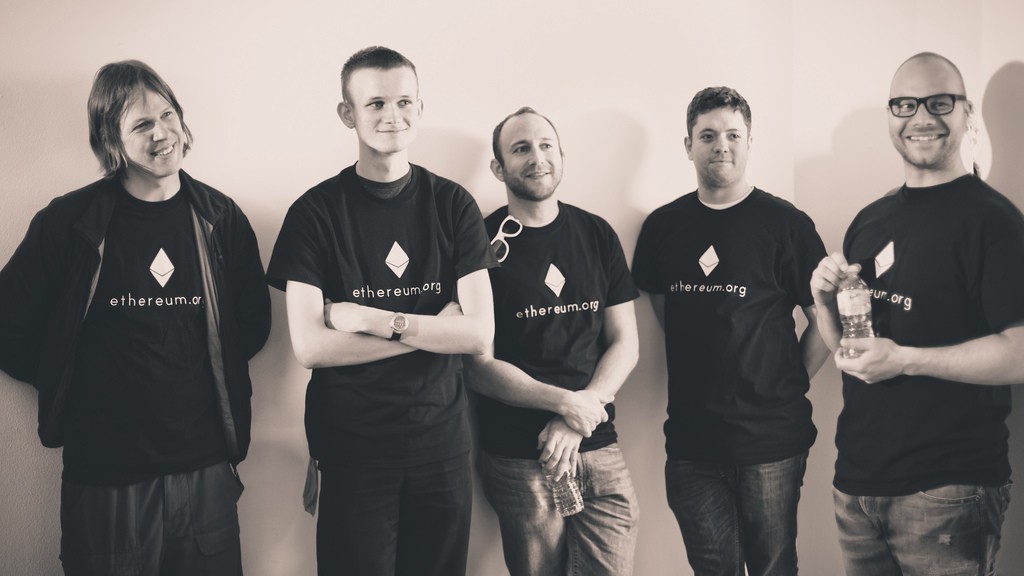6 Things to Consider When Reviewing a Potential Cryptocurrency Investment
Jack Choros
Content Marketing
The fear of missing out is a powerful force. There is a good chance that fear has investors chomping at the bit to get involved with any number of cryptocurrency investments that could 10x their investment in no time. Given that Bitcoin and other cryptocurrencies are outperforming traditional financial markets, it can be tempting to take a large principal investment and throw it into promising projects quickly.
Why Doing a Thorough Review of a Potential Cryptocurrency Investment Is Crucial
Any successful investing journey must start with conducting proper due diligence. Doing just that in traditional financial markets is much easier than it is in the cryptocurrency space. The world of traditional finance is flanked by centuries of legislation and regulation, a well thought out system of central and retail banks, and all of the staff members and financial advisors that serve customers online and face-to-face.
While the world of decentralized finance and cryptocurrencies is certainly taking direct aim at that whole structure and 2020 has been a banner year for innovation in the space, the reality is that governments and central banks are constantly struggling with the idea of both regulating and coexisting with cryptocurrencies.
There is no Bitcoin customer service hotline you can call if you get hacked. There is no government sanctioned licensing program for financial advisors who specialize in cryptocurrency, and the fact that cryptocurrencies allow you to be your own bank means you get all of the spoils when you succeed as an investor, but it also means you bare most of the risk as well.
That’s why the goal of this blog post is to arm you with the basic steps you need to take when reviewing a cryptocurrency investment opportunity. By no means is this post the be-all and end-all, but it is meant to give you a solid foundation for how to vet projects before you invest any significant capital into them.

Read (the Whitepaper) and Do Your Research
Investing in a cryptocurrency project without reading the whitepaper is like investing in a traditional mutual fund without reading the investment prospectus. In the traditional financial world, a financial advisor is legally obligated to provide you with an investment prospectus. Most good ones will actively encourage you to read it. In the cryptocurrency world, you are your own financial advisor and if you don’t know where to look to find a whitepaper or how to separate a good one from a bad one, you could be setting yourself up for trouble.
One thing to note here is that just because a whitepaper is long and appears to be robust, doesn’t mean that the token or crypto project itself will have fundamental value. Consider for a moment that Bitcoin is the most valuable cryptocurrency in the world today, yet the Bitcoin whitepaper is only eight pages long.
Regardless of length, keep in mind that the goal of the whitepaper is to define a specific problem and offer a specific solution to that problem. In vetting a whitepaper, ask yourself:
- What specific problem is this project aiming to solve?
- What is the specific solution the project provides for solving that problem?
- What is the overall mission and vision of the founders and what do they deem a success?
- What are the key milestones or goals the project will achieve?
- Does the whitepaper itself contain a clear development roadmap?
- What are the use cases for the cryptocurrency itself?
The more you can answer these questions in detail, the more confident you can be in your investment decision.

Find out about the Team behind the Project
A good whitepaper can certainly help outline the value proposition of a cryptocurrency project. But the project’s ability to create the environment necessary for achieving that value proposition is only as good as the team behind the project. If you do a basic Google search and can’t find out much information about the team behind a project, that’s a clear red flag. If you do find out a lot of information about a particular member of the team and it turns out they’ve been involved in previous projects that failed or resulted in an exit scam, that’s an obvious no-no too.
The best way to do research about team members behind a project is to Google their names and learn as much about them as you can obviously. If you’re new to the cryptocurrency world in general, one good way to do just that is to start by learning about the founders of projects that are already established. Many founders of early cryptocurrency projects from years gone by have now amassed a significant amount of both wealth and clout in the blockchain technology industry and they are using their newfound capital to invest in new projects.
Evaluate the Projects of Ethereum Founders
Tracking what the founders of Ethereum are doing now is recommended for most beginners looking to vet projects on their own. There are eight founders in total and two of those founders are behind big-name projects. Charles Hoskinson is one of them. He is also the founder of Cardano, a third-generation smart contract blockchain. Hoskinson’s former colleague Gavin Wood is the founder of Polkadot, the latest third-generation blockchain to grab the attention of cryptocurrency investors.
Whether or not you choose to invest in projects specifically looking to improve on smart contracts and scalability issues is up to you. There is however a different reason you should start evaluating what Ethereum’s founders are doing now. That’s because Ethereum is not only the second most valuable cryptocurrency in the world, it’s the first one to reveal the identities of the founders. Remember that Satoshi Nakamoto is the founder of Bitcoin, but his/her real identity is unknown, so nobody gets to pick Satoshi’s brain.
By studying projects that Ethereum founders have created, you can develop your own sense of basic principles that define what a solid cryptocurrency project looks like. Using this blog post for support, you can dabble into technical details and eventually, you’ll be able to fill in gaps yourself. Then you can dive into more complex or unique projects that may go beyond basic blockchain or smart contract designs.

Get to Know People in the Cryptocurrency Space
One of the cool things about the cryptocurrency world is that it is meant to be inclusive and for everybody. Even if you can’t get in touch with the founders of a project, you can develop your own relationships in the industry and learn from people who have more experience investing in cryptocurrencies than you do. The traditional financial world doesn’t allow the average investor to get in touch with Tim Cook, the CEO of Apple or Jeff Bezos, the CEO of Amazon.
If you start going to blockchain conferences or local Bitcoin meetup groups in your area (even if only virtually), you’ll meet all kinds of people who’ve already been into cryptocurrency for many years. Some of them may even have significant capital invested because they got into Bitcoin early. Many others might be able to tell you horror stories of projects they invested in that ended up being a scam. Either way as you build trust with people in the community, you’ll learn how others deconstruct the validity of a project and you’ll be able to further develop your own philosophy as to how to do that.
Ultimately no matter how you choose to build wealth, remember that as crypto enthusiasts and investors, we are all in the business of building relationships. The cryptocurrency community is not only growing exponentially, it’s also very friendly. Engaging with it is a great way to learn and become a better progressive investor.
Understand the Legalities of Initial Coin Offering
Governments are always racing against the clock when it comes to regulating cryptocurrency projects and the token sales and initial coin offerings that often go along with them. That said, just because a token can exist on a decentralized platform, doesn’t mean you’re not obligated to disclose your holdings or go through Know Your Client verification before you claim your holdings. Certain investing opportunities may also be restricted to certain countries. Don’t assume that because you live in the Great White North, you can invest in just any token sale.
Read disclosures and legal information related to token sales and initial coin offerings you may be interested in. Typically, the founders who run these sales aren’t going to hold your hand and make sure that what you’re doing is legal in your country of residence.
Not only do you want to avoid getting yourself in hot water legally, investing in a project that does not perform any kind of KYC and does not offer any legal disclosures may also be a sign that you’re looking at a project planning an exit scam.

Evaluate Token Economics and the Token Sale Process
Many of the new cryptocurrency projects on the market ‘going viral’ at any given time provide investors with a new approach for developing a blockchain. They also likely provide a unique way for rewarding investors and users. The top investing buzzwords in the crypto world right now are staking, lending and yield farming. Projects that appeal to those particular investing features are doing well.
That being said, when you’re looking at the token economics of a project as a serious investor, you’ve got to keep an eye on the long term. Initial coin offerings were all the rage at the end of 2017, but you don’t hear about them as much today. Decentralized finance, lending and yield farming are booming right now, but projects may position themselves differently three or four years from now.
Beyond understanding how you may or may not get rewarded for holding onto a specific cryptocurrency, you also need to be mindful of what the founders of the project are getting out of their hard work. Are they keeping a large number of tokens to themselves? Is there a vesting period involved where founders must hold onto tokens until they provide the market with a certain minimum viable product? Does the way the token sale is structured lead you to believe that everybody involved with the project is committed to seeing it through to the end of the technical roadmap? These are things you need to consider when investing.
At the end of the day, a truly decentralized cryptocurrency is meant to be by the community and for the community. If the token economics of a project don’t put the end user first when it comes to earning more crypto dollars, it probably doesn’t make sense to invest in it.
What to Do When You’re Ready to Make Your First Cryptocurrency Investment
Establishing trust with the founders of cryptocurrency projects or other cryptocurrency investors who know more than you do takes time. You also need to be able to trust yourself and build your own confidence as a progressive investor. Nobody can tell you how much of your own capital you should pour into cryptocurrency and they can’t tell you which projects to focus on.
One thing you do need is access to a cryptocurrency exchange in Canada that you can trust. Netcoins is a Bitcoin exchange located in Vancouver that allows you to register for an account for free. You can turn your Canadian dollars into Bitcoin, Ethereum, and Litecoin as well as stablecoins that don’t fluctuate in value in case you’d like to wait on the sidelines while holding your investing capital in the form of cryptocurrency. Getting started is as simple making a credit card purchase or initiating an Interac e-transfer.
Wishing you the best in developing your own framework for vetting cryptocurrency investment opportunities!
Buying bitcoin is easy with Netcoins. Create an account, fund it with an e-Transfer (other funding options available), and head to the trade page to buy or sell bitcoin. Netcoins is a fully regulated, publicly owned crypto trading platform.
Written by: Jack Choros
Writer, content marketing at Netcoins.